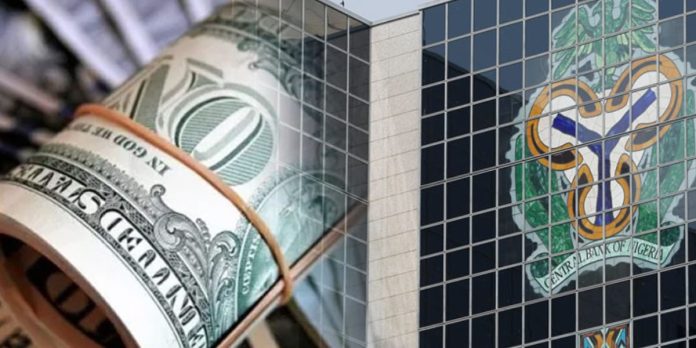Nigeria’s foreign reserves have increased to $40.08 billion on November 7, 2024, reaching their highest level in nearly two years, according to data by the Central Bank of Nigeria (CBN).
This milestone marks a significant increase driven by the CBN’s policies to enhance foreign currency inflows through formal channels.
Since September’s end, when reserves stood at $38.3 billion, steady growth has been recorded, reflecting a $1.7 billion increase by early November. This upward trend follows a dip below $34 billion earlier in 2024, a time when foreign exchange pressures and global oil market volatility weighed heavily on reserves.
The CBN’s remittance-targeted reforms and efforts to engage International Money Transfer Operators (IMTOs) and Nigeria’s diaspora have been instrumental in this rebound.
The sustained growth trajectory from $33.7 billion in June to $40.08 billion emphasises the effectiveness of the central bank’s policies underscoring the CBN’s commitment to maintaining naira stability and improving foreign exchange inflows.
During a recent symposium in Abuja, CBN Governor Olayemi Cardoso highlighted the impact of these efforts, noting that the reserve level represents the highest in nearly three years. “These reforms have started yielding positive results, with notable improvements in the FX market and a stabilisation of foreign reserves,” Cardoso stated.
He also reiterated the CBN’s dedication to further engaging Nigeria’s diaspora at the recent IMF and World Bank meetings in Washington, D.C., emphasising the role of diaspora inflows in Nigeria’s remittance recovery.
He said: “Nigeria has such a strong diaspora community here; in the earlier stages of the reforms, IMTOs were having issues transferring money back to Nigeria, and we felt it was important to engage them, and we did. As a result of that engagement, we identified particular problems, of which a lot of responsibility was shared. Things have since improved because as at the last meetings, which was, I think, April, monthly inflows were about $250 million, but as of September, it had risen to $600 million.
“With the recent announcement by Nigeria Interbank Settlement Systems (NIBBS) on Bank Verification Number (BVN), and other products that the banking industry is offering, and through engagement with the diaspora, we believe we will be able to move accordingly and again, rising from that engagement, we put our sights on increasing the inflows to $1 billion monthly and I’m confident that we will get there,” he explained.
Meanwhile, the naira is forecasted to depreciate to N1,993 against the United States dollar by 2028, posing a significant challenge to Nigeria’s pharmaceutical industry, particularly in importing essential medical devices, a new report by BMI, a Fitch Solutions subsidiary, has revealed.
In the report titled “Weak Naira and Structural Challenges to Constrain Nigeria’s Medical Devices Market Growth”, BMI projected that despite an anticipated rebound in the economy, Nigeria’s medical devices sector will face operational and demand challenges in the near term.
The report noted that Nigeria relies on imports for over 95 per cent of its medical devices, making it vulnerable to fluctuations in exchange rates.
“Continued weakness of the naira will increase medical device import costs and erode consumer purchasing power. Similar to other markets in sub-Saharan Africa, Nigeria heavily relies on medical device imports, with reliance of over 95 per cent.
We expect that the naira will end 2028 at N1,993/$ from N306/$ in 2018. As the naira weakens, the cost of importing medical devices will continually increase, eroding both the health system and patient purchasing power especially to invest in essential medical technologies given underfunding of the public health sector.
This would particularly affect high-cost demand for devices such as diagnostics, orthopaedics and dental products. On the export front, a weaker naira will enhance the competitiveness of locally manufactured medical devices, fostering growth in the sector,” the report stated.
While a weaker naira could enhance the competitiveness of locally manufactured medical devices, BMI highlighted persistent barriers to local production.
These include a scarcity of skilled labour, limited access to modern technology, and inadequate infrastructure, which continue to undermine manufacturing efforts despite government incentives.
The administration of President Bola Tinubu has implemented measures aimed at easing these pressures. In June 2024, an executive order was issued to reduce medical service costs by eliminating tariffs, excise duties, and Value Added Tax on specific machinery, equipment, and raw materials, with the goal of lowering local production costs.
However, BMI observed that the medical devices market would continue to face significant challenges in the short term.
The report forecasted that Nigeria’s medical devices market could grow to a value of N171.1bn (£344.7m) by 2028, supported by a large population, an increasing focus on universal health coverage, and the double burden of chronic and communicable diseases.
Nigeria’s economy is expected to recover in 2025, with a growth rate of 3.0 per cent predicted for 2024, compared to 2.9 per cent recorded in 2023.
However, persistent issues such as high inflation, tighter monetary policies, and weak foreign direct investment could weigh on the growth of the medical devices sector.


